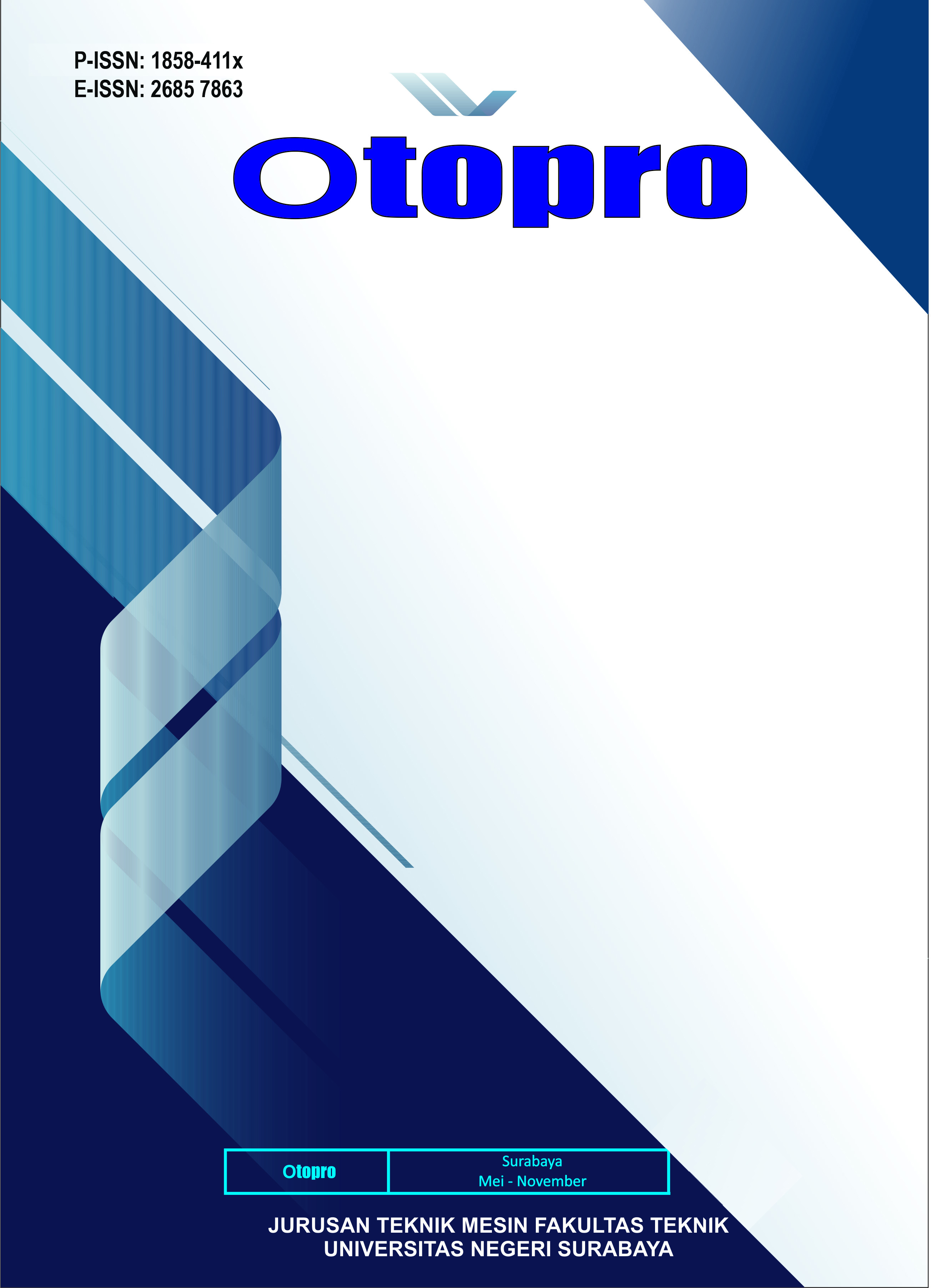PENGARUH VARIASI TRAVEL SPEED TERHADAP KEKUATAN TARIK PADA PENGELASAN DISIMILAR METAL DENGAN MIG ROBOTIC WELDING
DOI:
https://doi.org/10.26740/otopro.v19n1.p34-39Keywords:
dissimilar metal, travel speed, robotic welding, MIG welding, tensile strengthAbstract
Welding using dissimilar metals is a new phenomenon in the industrial world. Some studies have already addressed dissimilar metal welding, but they are limited to variations in welding current strength and voltage. None have yet explored welding travel speed, mainly due to the difficulty in controlling it in manual welding. Because of this background, the researcher conducted a study on welding by varying the travel speed. The aim of this research is to elucidate the influence of travel speed on tensile strength in dissimilar metal welding using MIG robotic welding. The study involved joining dissimilar metals, namely low carbon steel and stainless steel (SS 304), using the MIG Robotic Welding process with travel speed variations of 50 cm/second, 60 cm/second, and 70 cm/second. The welding results were then subjected to tensile testing and macrostructure observation of the fracture surfaces. The research findings indicate that the highest tensile strength was achieved at a travel speed of 50 cm/minute, with a maximum tensile strength of 839.8879 MPa.
References

Downloads
Published
How to Cite
Issue
Section
License

This work is licensed under a Creative Commons Attribution-NonCommercial 4.0 International License.
 Abstract views: 427
,
Abstract views: 427
, PDF Downloads: 517
PDF Downloads: 517


3.png)










